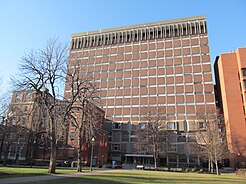
Boston University (BU) is a private research university in Boston, Massachusetts. BU was founded in 1839 by a group of Boston Methodists with its original campus in Newbury, Vermont. It was chartered in Boston in 1869. The university is a member of the Association of American Universities and the Boston Consortium for Higher Education.
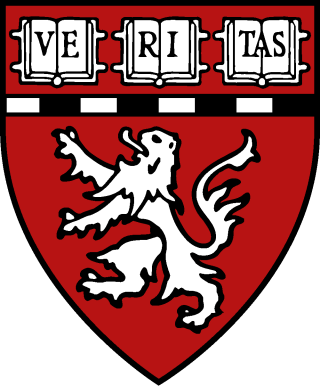
Harvard Medical School (HMS) is the medical school of Harvard University and is located in the Longwood Medical Area in Boston, Massachusetts. Founded in 1782, HMS is one of the oldest medical schools in the United States, and provides patient care, medical education, and research training through its 15 clinical affiliates and research institutes such as Massachusetts General Hospital (MGH), Dana–Farber Cancer Institute, Brigham and Women's Hospital, Beth Israel Deaconess Medical Center, Boston Children's Hospital, Mount Auburn Hospital, McLean Hospital, Cambridge Health Alliance, The Baker Center for Children and Families, and Spaulding Rehabilitation Hospital. Harvard Medical School also partners with newer entities such as Harvard Catalyst, Broad Institute of MIT and Harvard, Harvard Stem Cell Institute, the Center for Primary Care, and Wyss Institute for Biologically Inspired Engineering.
The University of Texas Southwestern Medical Center is a public academic health science center in Dallas, Texas. With approximately 23,000 employees, more than 3,000 full-time faculty, and nearly 4 million outpatient visits per year, UT Southwestern is the largest medical school in the University of Texas System and the State of Texas.

The Tulane University School of Medicine is the medical school of Tulane University, a private research university in New Orleans, Louisiana. The school is located in the Medical District of the New Orleans Central Business District.
UMass Chan Medical School is a public medical school in Worcester, Massachusetts. It is part of the University of Massachusetts system. It is home to three schools: the T.H. Chan School of Medicine, the Morningside Graduate School of Biomedical Sciences, and the Tan Chingfen Graduate School of Nursing, as well as a biomedical research enterprise and a range of public-service initiatives throughout the state.
The University of Texas Health Science Center at Houston is a public academic health science center in Houston, Texas, United States. It was created in 1972 by The University of Texas System Board of Regents. It is located in the Texas Medical Center, the largest medical center in the world. It is composed of six schools: McGovern Medical School, The University of Texas MD Anderson Cancer Center UTHealth Graduate School of Biomedical Sciences, UTHealth School of Dentistry, Cizik School of Nursing, UTHealth School of Biomedical Informatics and UTHealth School of Public Health.
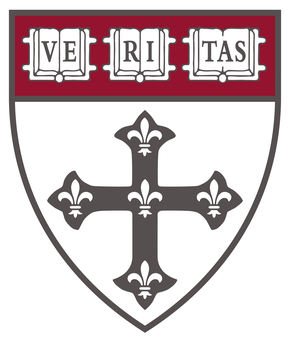
The Harvard T.H. Chan School of Public Health is the public health school of Harvard University, located in the Longwood Medical Area of Boston, Massachusetts. The school grew out of the Harvard-MIT School for Health Officers, the nation's first graduate training program in population health, which was founded in 1913 and then became the Harvard School of Public Health in 1922.
NYU Grossman School of Medicine is a medical school of New York University (NYU), a private research university in New York City. It was founded in 1841 and is one of two medical schools of the university, the other being the NYU Grossman Long Island School of Medicine. Both are part of NYU Langone Health.

The Tufts University School of Medicine is the medical school of Tufts University, a private research university in Massachusetts. It was established in 1893 and is located on the university's health sciences campus in downtown Boston. It has clinical affiliations with numerous doctors and researchers in the United States and around the world, as well as with its affiliated hospitals in both Massachusetts, and Maine.
The Doctor of Medicine–Doctor of Philosophy (MD–PhD) is a dual doctoral program for physician–scientists, combining the professional training of the Doctor of Medicine degree with the research program of the Doctor of Philosophy degree.
Albany Medical College (AMC) is a private medical school in Albany, New York. It was founded in 1839 by Alden March and James H. Armsby and is one of the oldest medical schools in the nation. The college is part of the Albany Medical Center, which includes the Albany Medical Center Hospital.
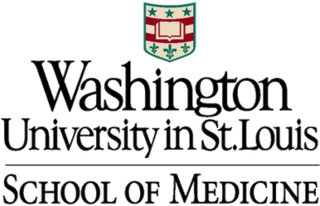
Washington University School of Medicine (WUSM) is the medical school of Washington University in St. Louis, located in the Central West End neighborhood of St. Louis, Missouri. Founded in 1891, the School of Medicine shares a campus with Barnes-Jewish Hospital, St. Louis Children's Hospital, and the Alvin J. Siteman Cancer Center.
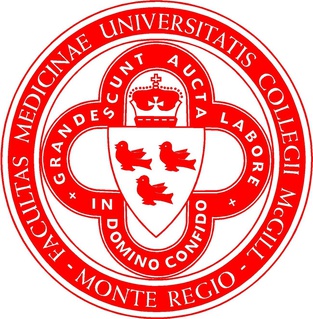
The Faculty of Medicine and Health Sciences is one of the constituent faculties of McGill University. It was established in 1829 after the Montreal Medical Institution was incorporated into McGill College as the college's first faculty; it was the first medical faculty to be established in Canada. The Faculty awarded McGill's first degree, and Canada's first medical degree to William Leslie Logie in 1833.
The Duke University School of Medicine, commonly known as Duke Med, is the medical school of Duke University. It was established in 1925 by James B. Duke.

The University of Virginia School of Medicine is the graduate medical school of the University of Virginia. The school's facilities are on the University of Virginia grounds adjacent to Academical Village in Charlottesville, Virginia. Founded in 1819 by Thomas Jefferson, UVA SoM is the tenth oldest medical school in the United States. The School of Medicine confers Doctor of Medicine (M.D.) and Doctor of Philosophy (PhD) degrees, and is closely associated with both the University of Virginia Health System and Inova Health System.
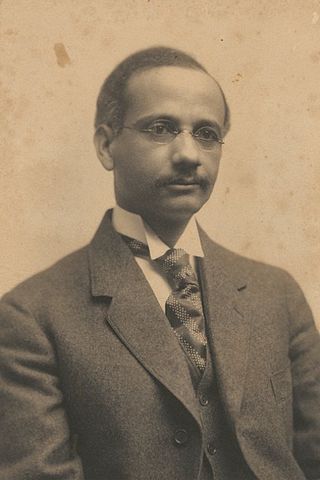
Solomon Carter Fuller was a pioneering Liberian neurologist, psychiatrist, pathologist, and professor. Born in Monrovia, Liberia, he completed his college education and medical degree (MD) in the United States. He studied psychiatry in Munich, Germany, then returned to the United States, where he worked for much of his career at Westborough State Hospital in Westborough, Massachusetts.
Case Western Reserve School of Medicine is the medical school of Case Western Reserve University, a private research university in Cleveland, Ohio. It is the largest biomedical research center in Ohio. CWRU SOM is primarily affiliated with University Hospitals Cleveland Medical Center, Cleveland Clinic, and the MetroHealth System.

The George Washington University School of Medicine and Health Sciences is the professional medical school of the George Washington University, in Washington, D.C. SMHS is one of the most selective medical schools in the United States based on the number of applicants.
Alice K. Jacobs is a professor at the Boston University Chobanian & Avedisian School of Medicine who specializes in interventional cardiology, coronary revascularization, and sex-based differences in cardiovascular disease.
Katya Ravid is a Biochemistry and Cell Biology professor at Boston University Chobanian & Avedisian School of Medicine. Ravid received her bachelor of science, PhD, and doctoral degree from the Israel Institute of Technology. She then received her postdoctoral at the Massachusetts Institute of Technology. As of 2021, she has been the inaugural incumbent of the Barbara E. Corkey Professor of Medicine of Boston University. She's a member of the Boston University's Whitaker Cardiovascular Institute and the Boston University-Boston Medical Center (BU-BMC) Cancer Center.
